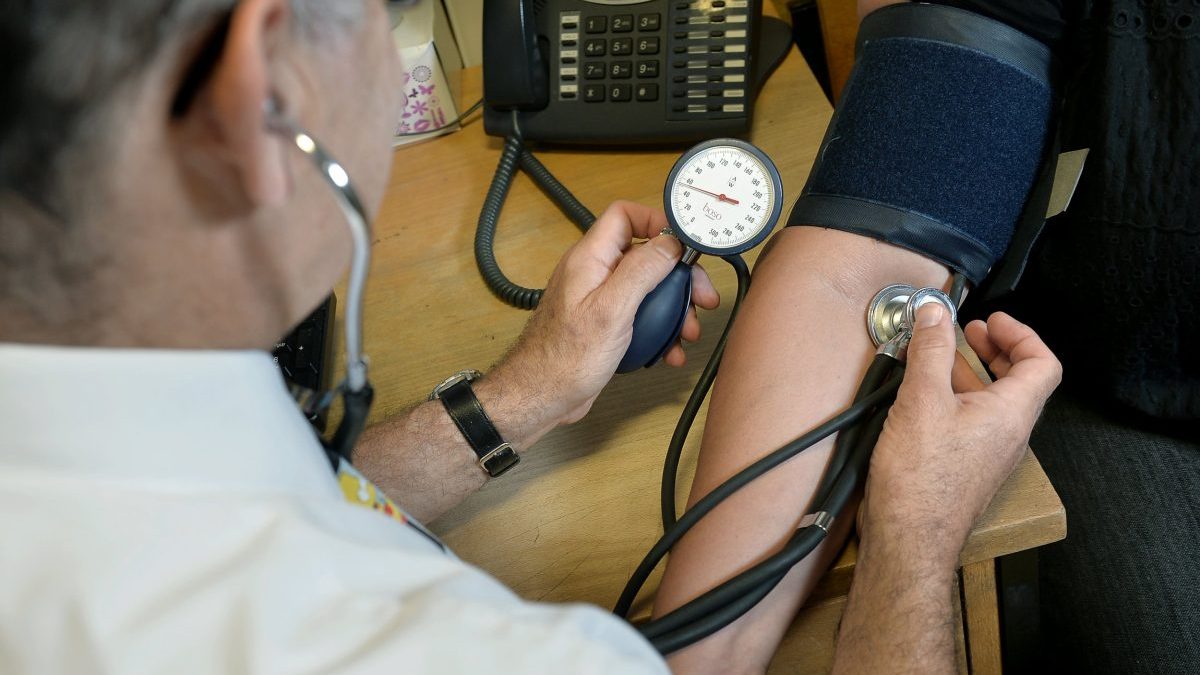At the moment, people can take £268,275 tax-free from their pension pot – but there have been calls for Rachel Reeves to cut this number
Senior doctors are more likely to retire early if Chancellor Rachel Reeves were to launch a raid on their tax-free pension lump sums, experts have said, in a move that could have big implications for the government’s aims to reduce NHS waiting lists.
Most retirees can take up to 25 per cent of their pension savings – to the value of £268,275 – tax-free, but there has been speculation that the Chancellor could cut the limit as she seeks to raise funds in her Budget.
Though NHS pensions work differently from most pensions in the private sector, healthcare workers can still draw a payment of up to £268,275 from their pensions. To do so, they have to retire, or partially retire.
If Reeves were to cut the maximum lump sum, there is an expectation that the change would come in from the next tax year, starting in April.
And experts say this could mean many senior doctors opting to take their lump sums – retiring or partially retiring – before then.
Graham Crossley, an NHS pensions expert and director at Medifintech, said: “If Reeves were to cut the pension lump sum, one would assume that would be from the start of a tax year, and this would trigger significant retirements to miss being stung – and it would be understandable.
“At the moment, they can take up to £268,275; if this allowance were reduced, then a lot of the new excess would likely end up being taxed at an additional rate.
“Once they retire, it may prove difficult to get them to go back to work. There’s the retire and return route, but that means giving up an existing contract and starting a new one, or going through partial retirement, which means they would have to reduce their pensionable pay by 10 per cent.
“Either way, if the lump sum allowance was reduced, it could impact NHS staffing resources.”
Julian Elford, a consultant radiologist with over 20 years of experience working in the NHS, said he had already taken his lump sum last year and taken partial retirement, partly in anticipation of changes by Reeves.
“If I had not already partially retired and a cut in the lump sum was announced, I would definitely take the maximum lump sum and partially retire to avoid the tax. I want to be in charge of my money rather than Reeves or anyone else,” he said.
He added that if the lump sum had been reduced to £100,000, as suggested previously by the Institute for Fiscal Studies (IFS) thinktank, he would have faced a large tax charge.
“If they make a change and there is a warning, I know basically every NHS consultant I speak to over 55 would retire or partially retire as soon as they could and draw that money now,” he said.
Jonatha Halberda, specialist financial adviser at Wesleyan Financial Services, said some doctors had taken their lump sums last year in the lead-up to the previous Budget, in reaction to speculation about lump sum changes that did not end up coming to fruition.
“It’s understandable that people are anxious about what might happen, but the challenges doctors faced after acting on speculation last time show why it’s so important to wait for the facts,” he said.
“However, there are real implications for the NHS workforce if doctors feel compelled to take their lump sums ahead of any rumoured change,” he added.
In the run-up to last year’s general election, the Labour Party pledged to cut NHS waiting times.
Waiting times are down since the election, though any policy that were to take doctors out of the workforce would likely make it more difficult to continue meeting the pledge.
HM Treasury spokesperson said: “We do not comment on speculation around tax changes, but remain committed to encouraging pension saving.
“Pension savers already benefit from around £78 billion a year in tax reliefs as the majority pay no tax on their contributions.”
